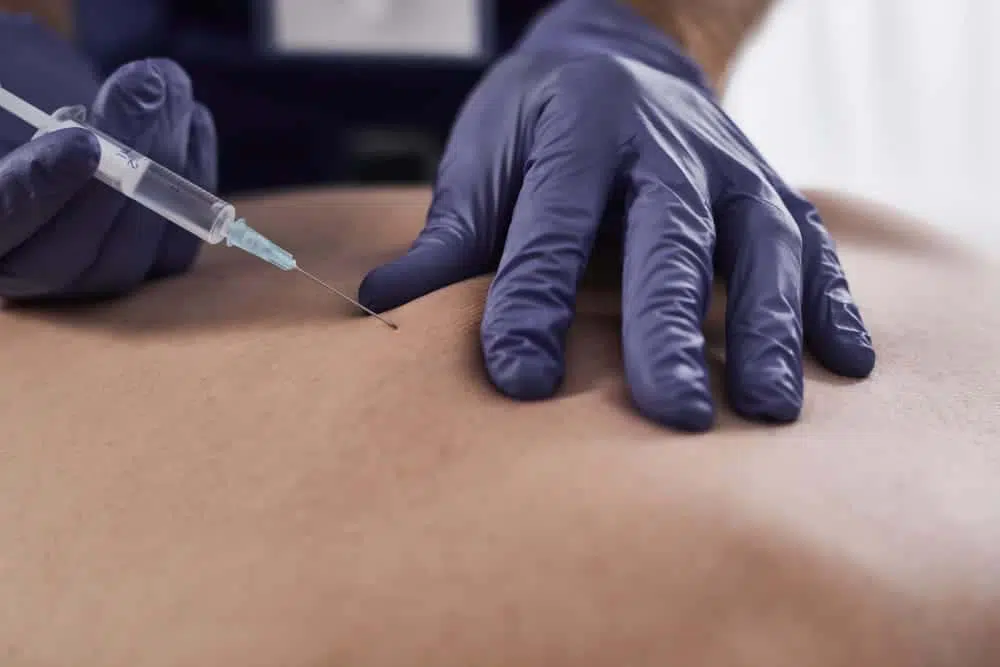Call Now!
Torrance Office: +1 (424) 360-0155

Medication has long been regarded as a cornerstone of pain relief and pain management in the medical profession. No doubt have you experienced some kind of relief from an anesthetic or OTC (over-the-counter) drug at some point in your life.
But all medications are not created equal -- and some drugs, notably opioids, can create more problems than they solve.
Here at Rolling Hills Medical, our pain doctors in Torrance CA make use of other kinds of medication, delivered in the form of pain injections that provide powerful, genuine relief without the dangerous side effects associated with other painkilling drugs. Let's look at three such injections and what you can expect during your pain visit.

Opioids are a strong class of painkilling drugs. They work by binding to nerve receptors, blocking pain signals and creating a sense of euphoria. But the synthetic opioids used in medicine appear to have stronger effects than naturally-occurring opioids do. This may boost the addictive properties that have led America into an opioid abuse epidemic.
OTC drugs such as NSAIDs (non-steroidal anti-inflammatory drugs) don't present the same addiction risk as opioids, but they're not automatically safe either. These drugs can cause everything from stomach bleeding to kidney disease and liver failure. Since their painkilling effects are also short-lived, you have to keep taking them every few hours to control your pain -- a potentially dangerous practice.
Our pain management doctor in Torrance can prescribe and administer painkilling injections that make use of different kinds of medication than OTC or opioid products. These drugs not only provide safer pain management, but they also work for much longer periods of time. Depending your pain's type and location, we can offer one of the following during your next pain clinic appointment:
The term "epidural" refers to the space between the vertebral structures of the spine and the dural sac that covers the spinal cord. After treating the injection site with a local anesthetic, we inject a dose of corticosteroid into the epidural space. This corticosteroid can dramatically reduce inflammation and swelling (a common cause of nerve impingement and chronic pain). The resulting pain relief can last for up to 2 years.
Facet joints are the joints that connect and articulate the spinal vertebrae. Bulging discs, osteoarthritis, and other types of degenerative spinal disease can cause severe pain and stiffness in these joints, as well as painful nerve impingement. A facet joint injection is a type of treatment known as nerve block. This injection combines an anesthetic and a corticosteroid, relieving pain and reducing inflammation. To ensure pinpoint precision, we use an imaging device called a fluoroscope to guide the path of the needle into the facet joint.
The sacroiliac (SI) joints connect the base of the spine to the hip bones. This area is prone to a painful inflammatory condition called sacroiliac joint dysfunction. Sacroiliac joint injections can help diagnose an SI problem. We inject two different types of painkiller into the joint; if both injections cause an immediate reduction in pain, then we know we can treat your SI symptoms effectively with this technique. We then administer a therapeutic injection containing a corticosteroid for long-lasting pain relief.
Don't take unnecessary risks with your health trying to numb your chronic pain issue with OTC or opioid drugs. Call Rolling Hills Medical today at 424-250-8699 for a consultation with our pain management doctor. Our injection techniques may be exactly what you need!
